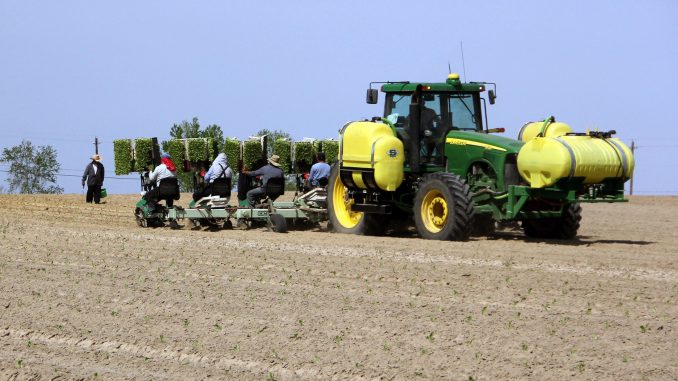
The N.C. General Assembly recently enacted Senate Bill 711, otherwise known as the N.C. Farm Act of 2018. This 13-page bill — supported by the entire leadership of the House and Senate along with Agriculture Commissioner Steve Troxler — contains a number of provisions, including one that would protect farmers from actions based on the tort of nuisance.
Gov. Roy Cooper moved quickly to veto this bill claiming that allowing lawyers to sue farmers actually protects N.C. families. Cooper said, in his veto statement, “North Carolina’s nuisance laws can help allow generations of families to enjoy their homes and land without fear for their health and safety.”
Cooper knows better — and so do North Carolina families and farmers. North Carolina has one of the most stringent environmental programs that highly regulates farming operations, and the vast majority of farmers follow these rules. The law passed by the General Assembly and vetoed by the governor was simple — if you follow the rules, you cannot be sued as a legal nuisance.
Interestingly, in rejecting these protections, the governor cited his failed nuisance lawsuit against the Tennessee Valley Authority. In his veto statement, Cooper said, “those same laws stopped the Tennessee Valley Authority from pumping air pollution into our mountains.”
Cooper, then attorney general, hired out-of-state trial lawyers and spent millions of dollars on a nuisance action against TVA for air pollution. Cooper’s nuisance arguments against the TVA were flatly rejected by the Fourth Circuit and the utility ultimately settled with the EPA on the basis of Clean Air Act violations. When the Fourth Circuit overturned Cooper’s injunction in that 2010 case, Judge J. Harvie Wilkinson said, “If allowed to stand, the injunction would encourage courts to use vague public nuisance standards to scuttle the nation’s carefully created system for accommodating the need for energy production and the need for clean air. The result would be a balkanization of clean air regulations and a confused patchwork of standards, to the detriment of industry and the environment alike.” That is precisely what is happening here.
Cooper either believes his agency’s environmental regulations aren’t sufficient to protect N.C. families, or he would prefer to expose N.C. farmers to unnecessary lawsuits despite their adherence to the rules. This is not the first time the Cooper administration has abandoned the regulatory framework in favor of a vague — but lucrative — approach. Earlier this year, Cooper secretly negotiated an agreement with the Atlantic Coast Pipeline wherein the governor would get $58 million that he could distribute — at his discretion — to ameliorate possible impacts associated with the construction of the pipeline. ACP, like family farms and industry in North Carolina, was already obligated to comply with environmental regulations and permit requirements. If the rules were sufficient to protect our environment, what was the $58 million for?
Companies and farmers that follow the rules should not be subjected to slush fund payments or nuisance actions. North Carolinians believe following the rules should be rewarded, not punished.
Neal Robbins is the publisher of the North State Journal.



